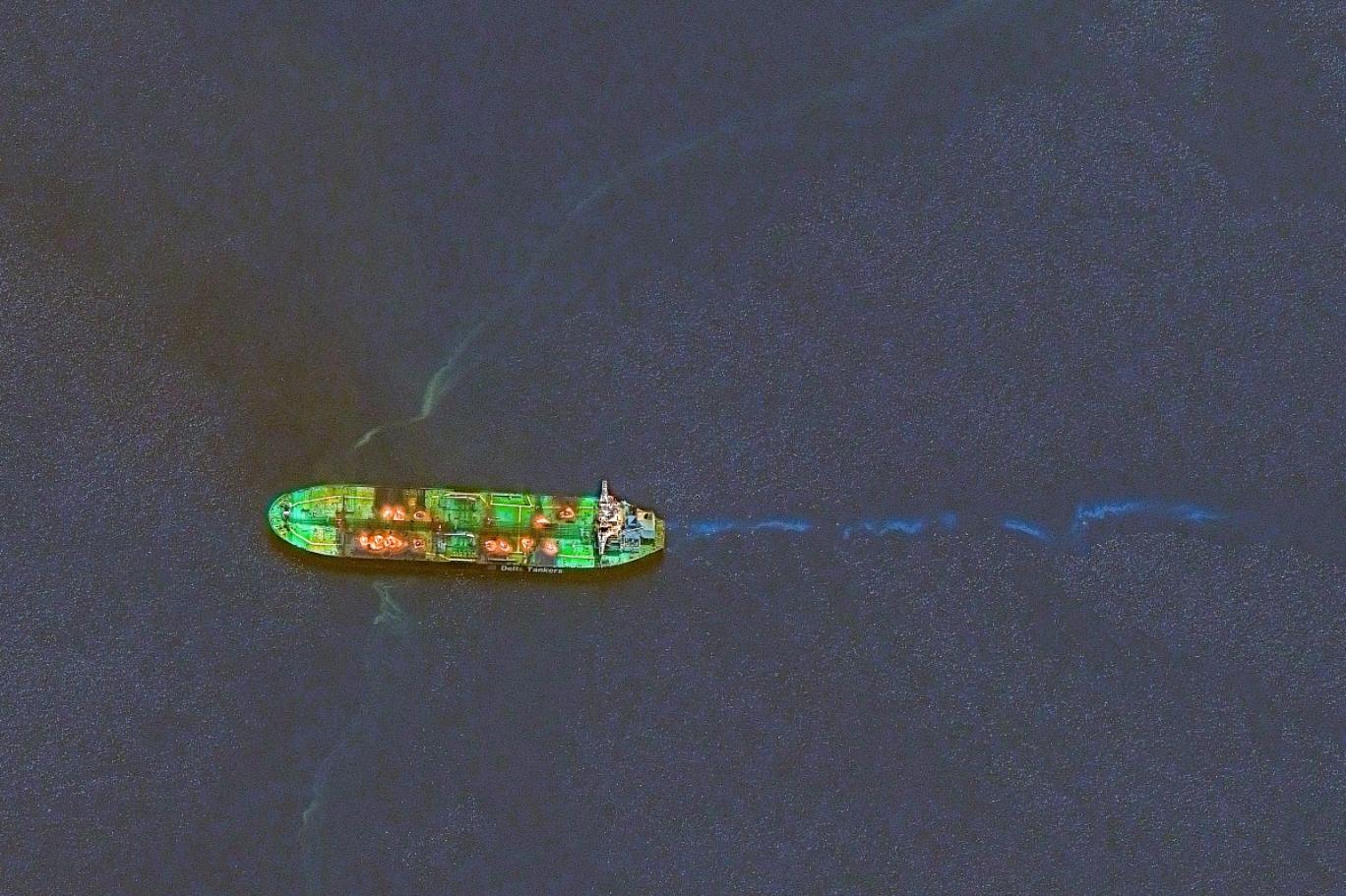من أصل 100.. تسلسل بأسوأ الهجمات الحوثية على السفن في البحر الأحمر خلال 10 أشهر
سياسة | 10 سبتمبر, 2024 - 7:39 م

حريق على سطح ناقلة النفط "سونيون" بعد استهدافها من قبل الحوثيين (أ ف ب)
 الإمارات تتجاهل مهلة مجلس الرئاسة بالانسحاب من اليمن وتعتبر بيان السعودية "مغالطات"
الإمارات تتجاهل مهلة مجلس الرئاسة بالانسحاب من اليمن وتعتبر بيان السعودية "مغالطات"  اليمن.. أعضاء الرئاسي الموالون للإمارات يعلنون رفضهم لقرارات العليمي ويصفونها بـ "الإنفرادية"
اليمن.. أعضاء الرئاسي الموالون للإمارات يعلنون رفضهم لقرارات العليمي ويصفونها بـ "الإنفرادية"  وزارة الدفاع وهيئة الأركان تؤكد جاهزيتها لاستكمال معركة التحرير ومواجهة المخططات التخريبية
وزارة الدفاع وهيئة الأركان تؤكد جاهزيتها لاستكمال معركة التحرير ومواجهة المخططات التخريبية  مجلس الدفاع الوطني يبارك القرارات الرئاسية لحماية المدنيين وإنهاء التواجد الاماراتي في البلاد
مجلس الدفاع الوطني يبارك القرارات الرئاسية لحماية المدنيين وإنهاء التواجد الاماراتي في البلاد  أكاديمي إماراتي يهاجم الرئيس العليمي والتحالف ويؤكد استمرار بلاده في دعم «الانتقالي»
أكاديمي إماراتي يهاجم الرئيس العليمي والتحالف ويؤكد استمرار بلاده في دعم «الانتقالي»  اليمن.. الحكومة تؤيد قرارات رئيس مجلس القيادة الرئاسي وتثمن مواقف السعودية
اليمن.. الحكومة تؤيد قرارات رئيس مجلس القيادة الرئاسي وتثمن مواقف السعودية 
 الإمارات تتجاهل مهلة مجلس الرئاسة بالانسحاب من اليمن وتعتبر بيان السعودية "مغالطات"
الإمارات تتجاهل مهلة مجلس الرئاسة بالانسحاب من اليمن وتعتبر بيان السعودية "مغالطات"  اليمن.. أعضاء الرئاسي الموالون للإمارات يعلنون رفضهم لقرارات العليمي ويصفونها بـ "الإنفرادية"
اليمن.. أعضاء الرئاسي الموالون للإمارات يعلنون رفضهم لقرارات العليمي ويصفونها بـ "الإنفرادية"  وزارة الدفاع وهيئة الأركان تؤكد جاهزيتها لاستكمال معركة التحرير ومواجهة المخططات التخريبية
وزارة الدفاع وهيئة الأركان تؤكد جاهزيتها لاستكمال معركة التحرير ومواجهة المخططات التخريبية  مجلس الدفاع الوطني يبارك القرارات الرئاسية لحماية المدنيين وإنهاء التواجد الاماراتي في البلاد
مجلس الدفاع الوطني يبارك القرارات الرئاسية لحماية المدنيين وإنهاء التواجد الاماراتي في البلاد  أكاديمي إماراتي يهاجم الرئيس العليمي والتحالف ويؤكد استمرار بلاده في دعم «الانتقالي»
أكاديمي إماراتي يهاجم الرئيس العليمي والتحالف ويؤكد استمرار بلاده في دعم «الانتقالي»  اليمن.. الحكومة تؤيد قرارات رئيس مجلس القيادة الرئاسي وتثمن مواقف السعودية
اليمن.. الحكومة تؤيد قرارات رئيس مجلس القيادة الرئاسي وتثمن مواقف السعودية 
سياسة | 10 سبتمبر, 2024 - 7:39 م

حريق على سطح ناقلة النفط "سونيون" بعد استهدافها من قبل الحوثيين (أ ف ب)